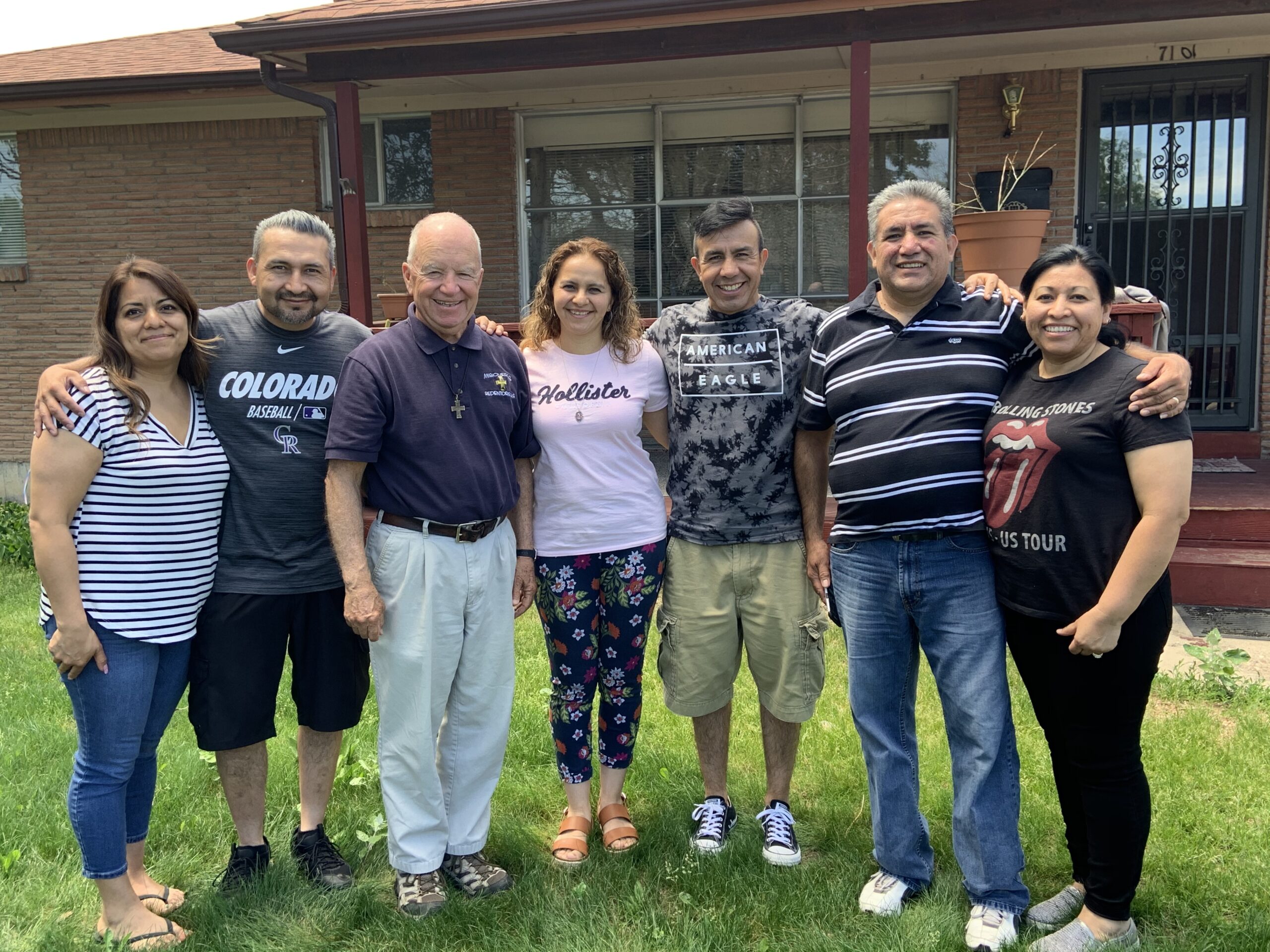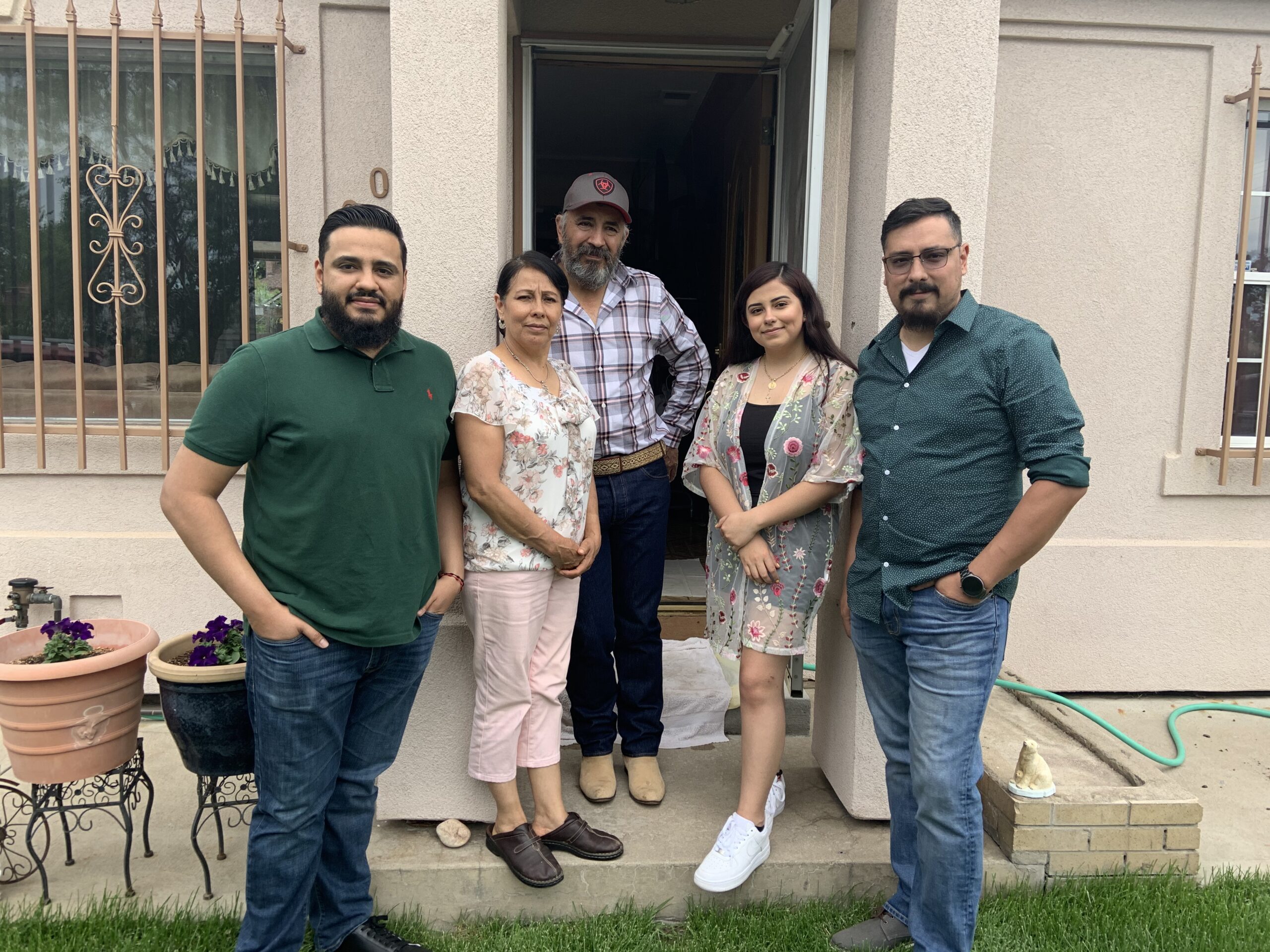1. Ascensión a Pentecostés
Esta semana, interrumpo la serie de considerar “caminar con mi pueblo” para considerar reflexiones sobre la Ascensión y Pentecostés. Estos momentos en la vida de la iglesia primitiva pueden ayudarnos a internalizar nuestra respuesta a la crisis que se apoderó de nuestras vidas durante el último año y medio. Volveré de nuevo al tema de “caminar con mi gente”.
Homilías para la Ascensión y Pentecostés
Mientras iba a ascender al cielo, Jesús les dijo a sus discípulos: “Vayan por todo el mundo y prediquen el Evangelio a toda creatura.” Mientras ascendía, la Iglesia primitiva ya no tendría la presencia constante de Jesús con ellos. Los ángeles preguntaron por qué estaban mirando hacia arriba. Sobrevivieron a la crisis del Viernes Santo. Jesús resucitó. Y durante cuarenta días estuvo con ellos, explicándoles las Escrituras y partiendo el pan con ellos. Ahora, él se había ido. ¿Qué iban a hacer? Él prometió que enviaría el Espíritu para guiarlos. No estarían solos, pero aún estaban inseguros.
Hace un año, la pandemia de COVID cambió nuestras vidas y nuestras prácticas de reunión para las misas dominicales. Cada diócesis dio sus propias instrucciones. Todas incluyeron una dispensa de asistir a la misa dominical. Mientras nuestra nación y el mundo esperan que se alivien las restricciones de nuestras vidas debido a COVID, damos la bienvenida a nuestras congregaciones a nuestras celebraciones dominicales de adoración. Se explicará de muchas maneras que nuestra dispensa de la obligación de la misa dominical ya no es necesaria. A medida que nuestras iglesias restablecen un contacto regular con el pueblo de Dios, espero que reconsideremos por qué “santificamos el día del Señor” como católicos.
En los mandamientos, Dios ordenó que “santifiquemos el sabado”. Después de los eventos de la Ascensión y Pentecostés, los discípulos se reunieron los domingos para “partir el pan” y la tradición finalmente se convirtió en un precepto de la Iglesia, que teníamos la “obligación” de asistir a misa los domingos. La gente razonable vio eso como un “objetivo” para nuestra participación religiosa. Reconocieron que la excepción a tal obligación estaba presente cuando no era posible asistir.
A medida que las diócesis hicieron declaraciones oficiales de dispensaciones generales del precepto de la “obligación dominical”, las parroquias ofrecieron servicios de instrucción y oración en línea y en los medios públicos. Ha pasado el tiempo, y en lugar de simplemente restablecer una obligación, espero que podamos obtener un enfoque más positivo de nuestra oración dominical.
En el ministerio de migrantes, he trabajado con personas que no tienen acceso a la asistencia regular a la iglesia, y deseo que en la próxima semana considere lo que se puede aprender de las personas que han llegado a comprender lo que pueden hacer para “santificar el día del Señor” cuando no pueden asistir a la misa dominical. Cuando estas personas tienen la oportunidad de asistir a misa, es con más alegría y significado que cuando podrían dar por obligación la misa dominical.
Sigo buscando ayuda
Ayúdame a preparar un programa sacramental para niños con necesidades especiales y tiempo limitado de preparación.
Por favor comparte conmigo tus recuerdos. Escribir a: [email protected]
This week, I interrupt the series of considering “walking with my people” to consider some reflections on the Ascension and Pentecost. These moments in the life of the early church may help us internalize our response to the crisis that took over our lives for the past year and a half. I will return to the “walking with my people” theme again.
Homilies for Ascension and Pentecost
As he was to Ascend into heaven Jesus told the disciples: “Go into the whole world
and proclaim the gospel to every creature.” As he ascended, the early Church no longer would have the constant presence of Jesus with them. The angels asked why they were looking up. They survived the crisis of Good Friday, Jesus rose and for forty days he was with them, explaining the scriptures and breaking bread with them. Now, he was gone. What were they to do? He promised that he would send the Spirit to guide them. They would not be alone, but they were still uncertain.
A year ago, the COVID pandemic changed our lives and our practices of gathering for Sunday Masses. Every diocese gave its own directions, but all included a dispensation from attending Sunday Mass. As our nation and the world hope that there is an easing of the restrictions of our lives due to COVID, we welcome home to our Sunday worship celebrations our congregations. It will be explained in many ways, that our dispensation from the obligation of Sunday Mass is no longer needed. As our churches reestablish regular contact with the people of God, I hope that we reconsider why we “make holy the sabbath” as Catholics.
In the commandments, God mandated that we “make holy the sabbath”. After the events of the Ascension and Pentecost, the disciples gathered on Sundays to “break bread” and the tradition eventually became a precept of the Church, that we had an “obligation” to attend Mass on Sundays. Reasonable people saw that as a “goal” for our religious participation. They recognized that the exception to such an obligation was present when it was not possible to attend.
As dioceses made official declarations of general dispensations from the precept of the “Sunday obligation”, parishes offered instruction and prayer services online and in public media. Time has passed, and rather than simply reinstating an obligation, I hope that we may gain a more positive approach to our Sunday worship, than simply encouraging worship by obligation.
In migrant ministry, I have worked with people who do not have access to regular church attendance, and I wish in this next week to consider what can be learned from people who have come to understand what they may do to “make the Lord’s Day holy” when unable to attend Sunday Mass. When these people do have the opportunity to attend Mass, it is with more joy and meaning than when they could take Sunday Mass for granted.
I am still looking for your ideas
Help me prepare a sacramental program for children with special needs and limited time for preparation.
Please share with me your memories. Write to: [email protected]
Oh Jesús, tú nos llamas: “Síganme”. Bendice, Señor, a todos los que acogen tu llamado. Puede que el camino no sea fácil, pero tenemos la confianza de que todo es posible si caminamos contigo. Que este viaje nos abra los ojos a las maravillas de tu amor por nosotros. Oramos por toda tu gente, por todos los creyentes e incrédulos, por los líderes y seguidores. Oramos por la sanación, el perdón, la compasión, la justicia y la paz. Oramos para que, al seguirte, nosotros también podamos ser pescadores de hombres. Bendícenos en nuestro viaje.
O Jesus, you call us, “Come after me.” Bless, O Lord, all who welcome your call. The path may not be easy, but we have confidence that all things are possible if we walk with you. May this journey, open our eyes to the wonders of your love for us. We pray for all your people, for all believers and unbelievers, for leaders and followers. We pray for healing, for forgiveness, for compassion, for justice, for peace. We pray that as we follow you, we too can be fishers of men. Bless us on our journey.




